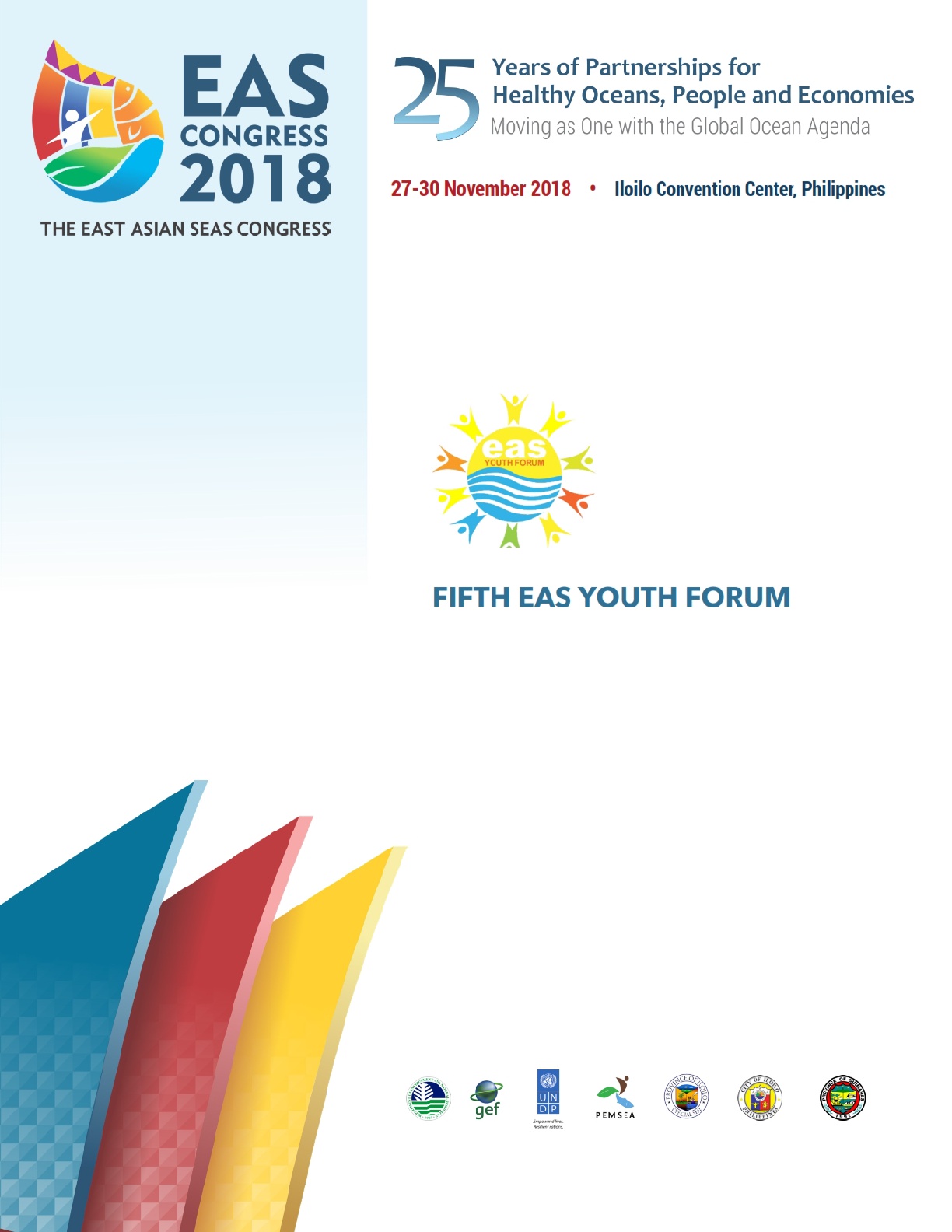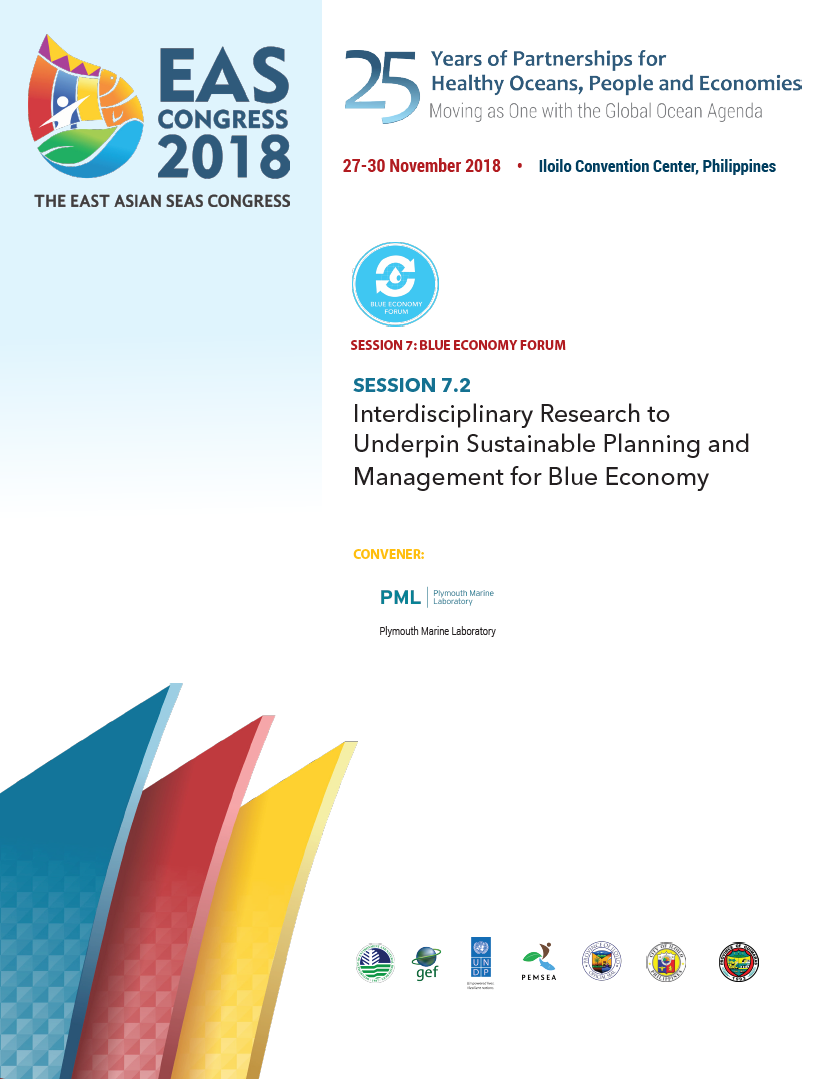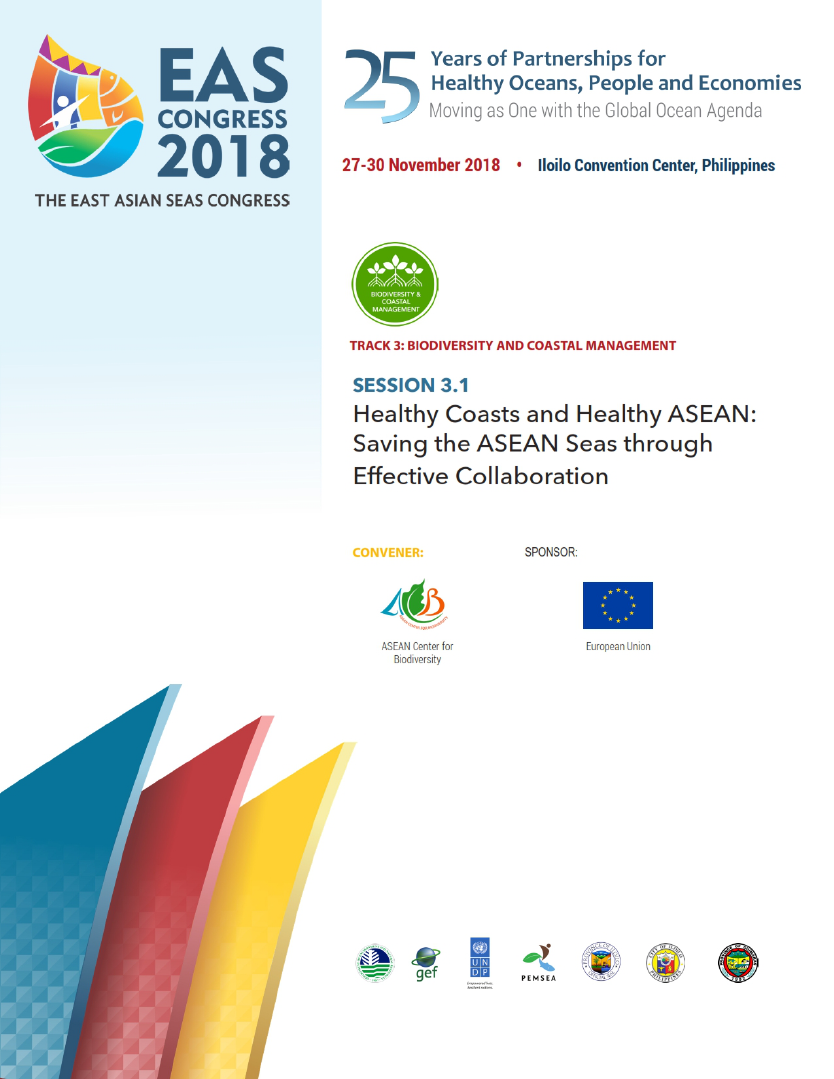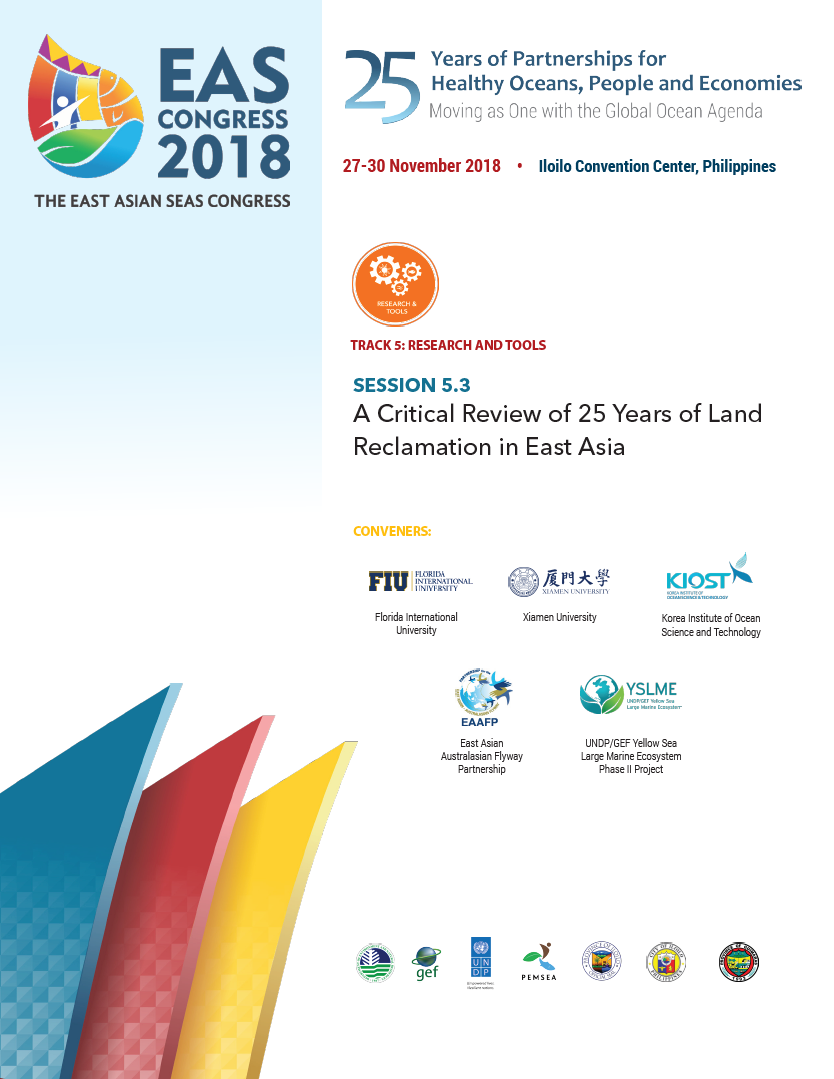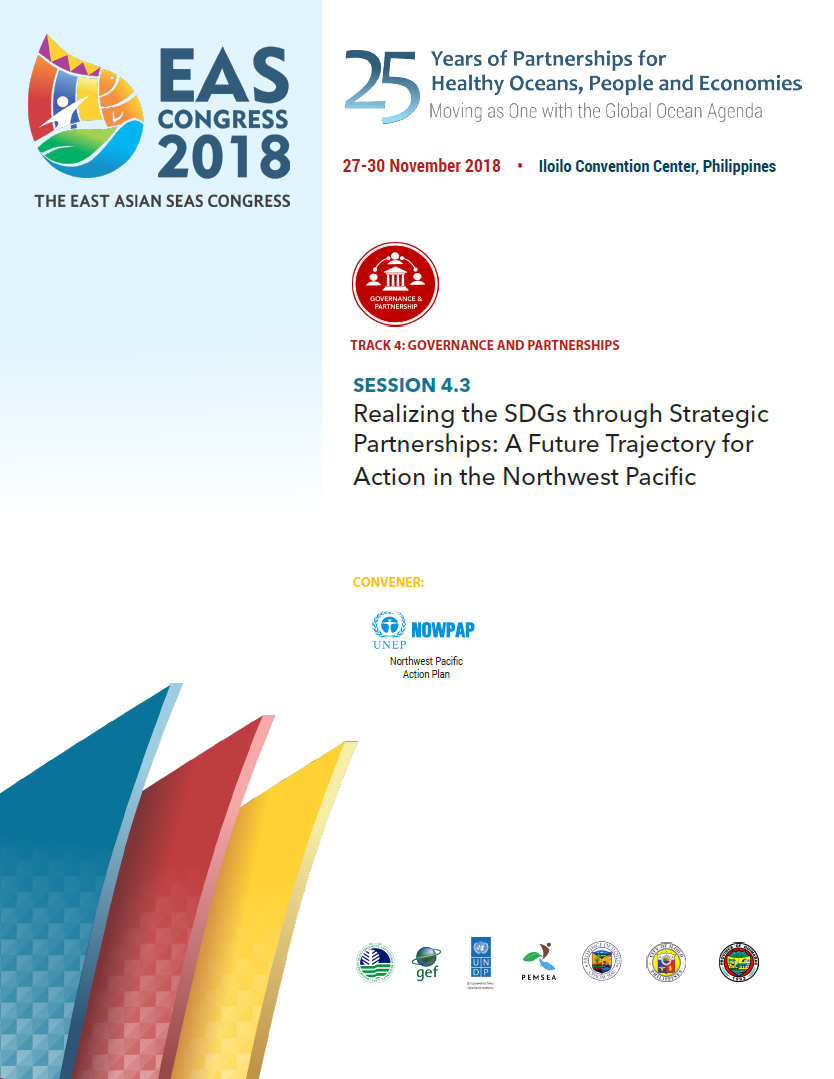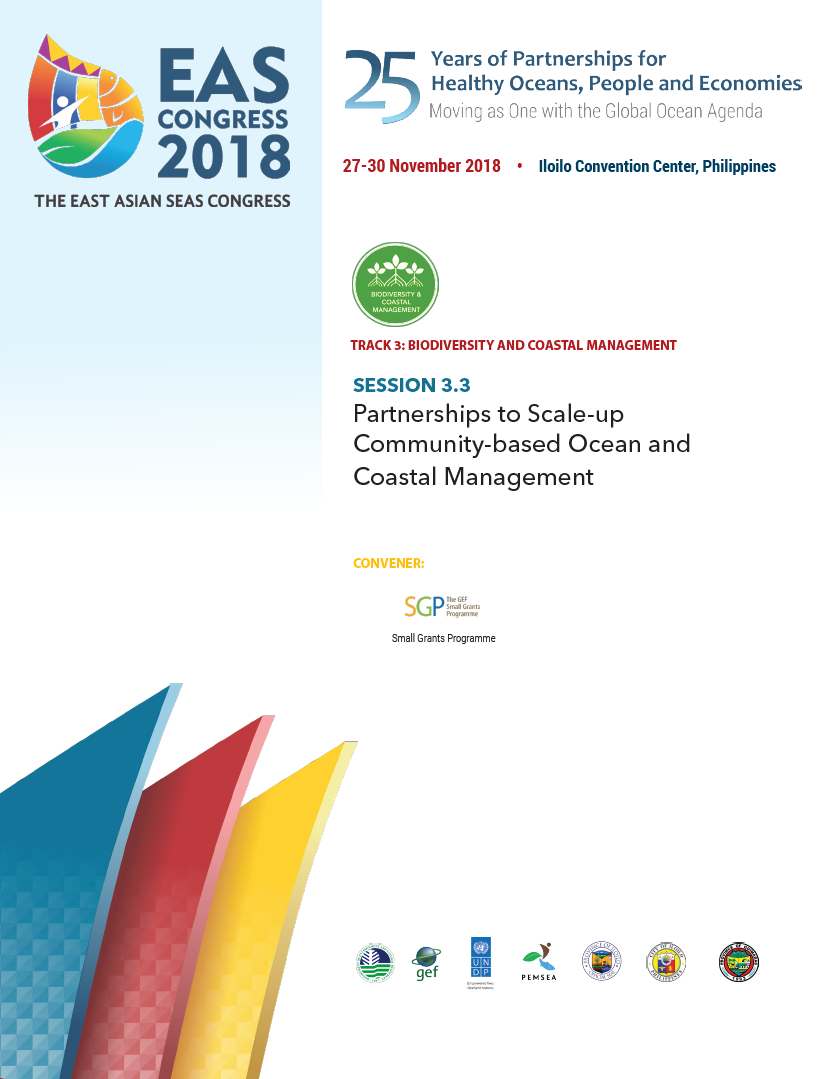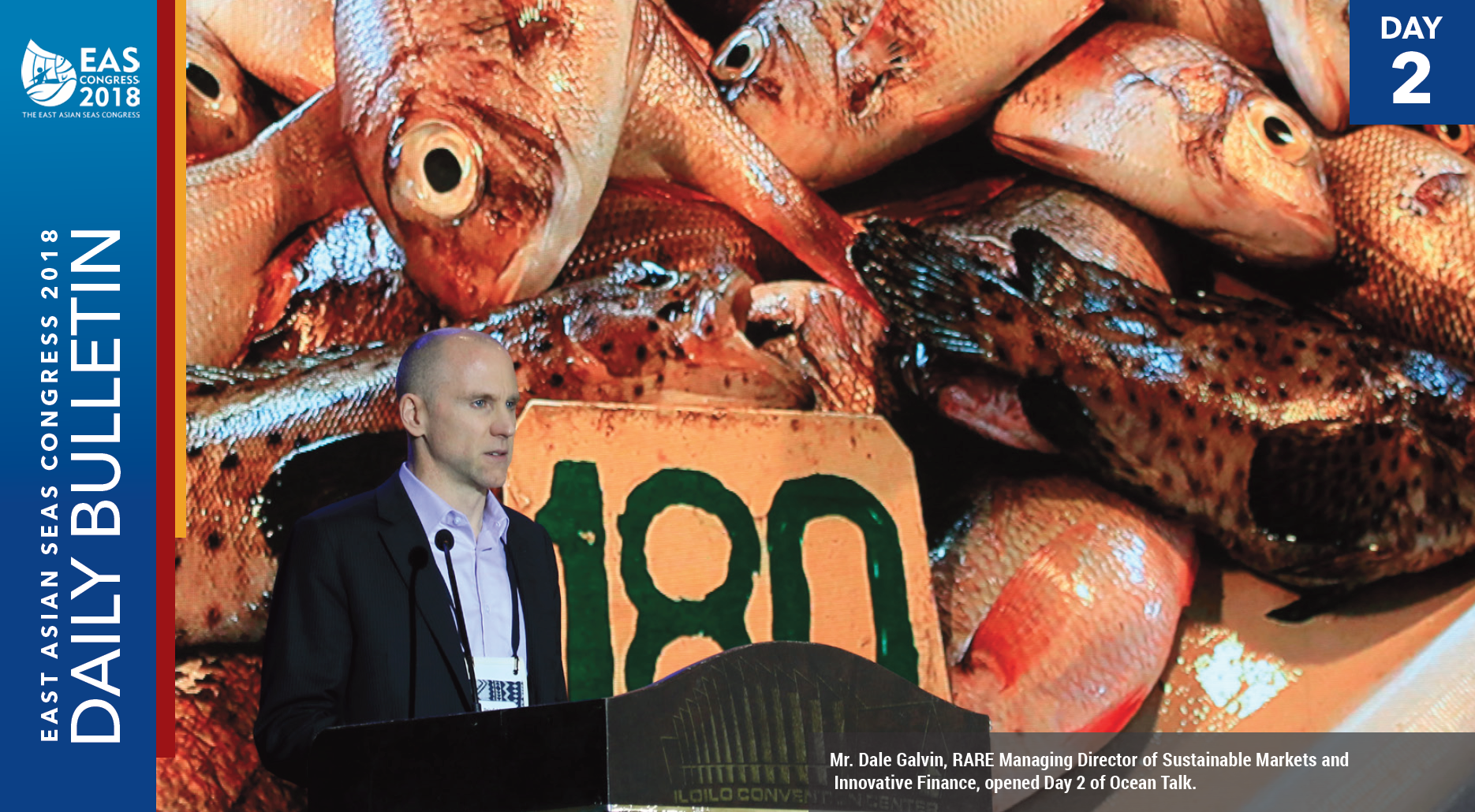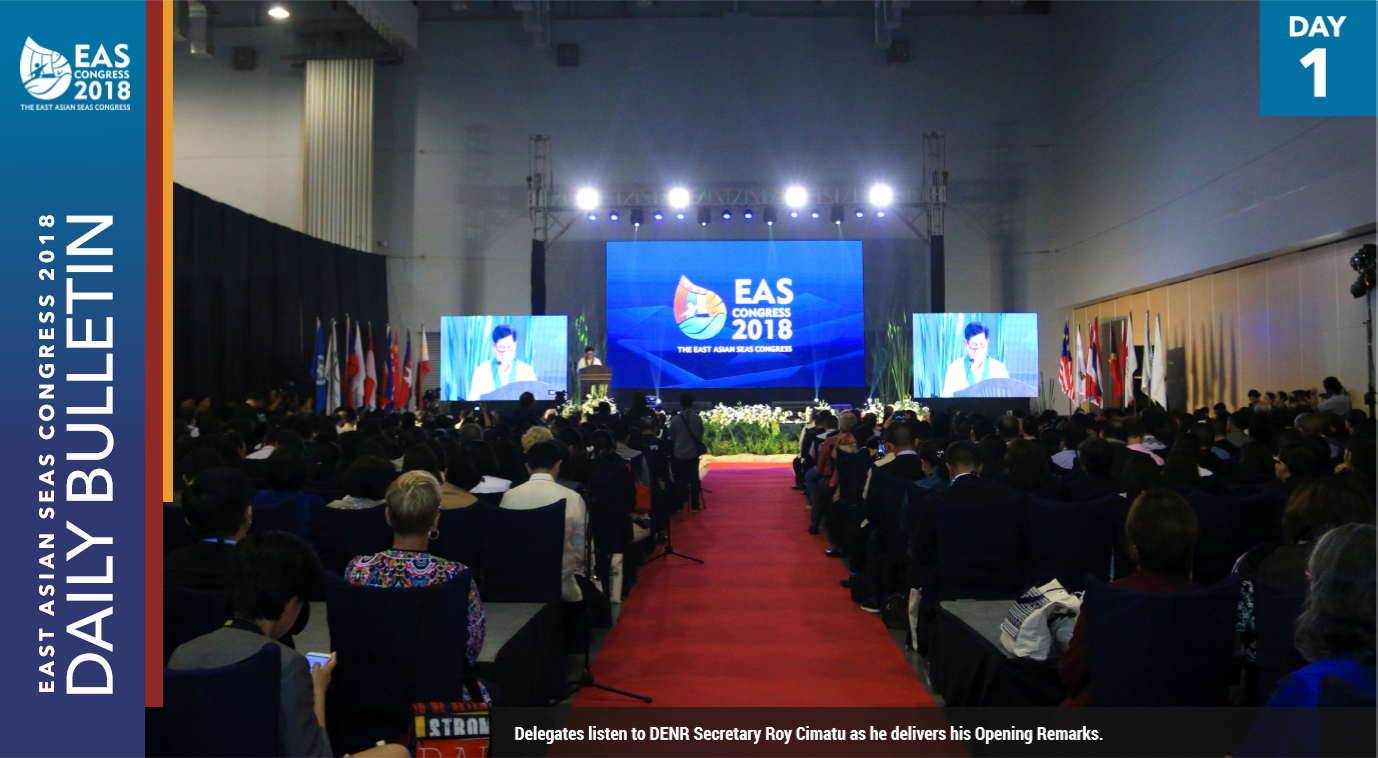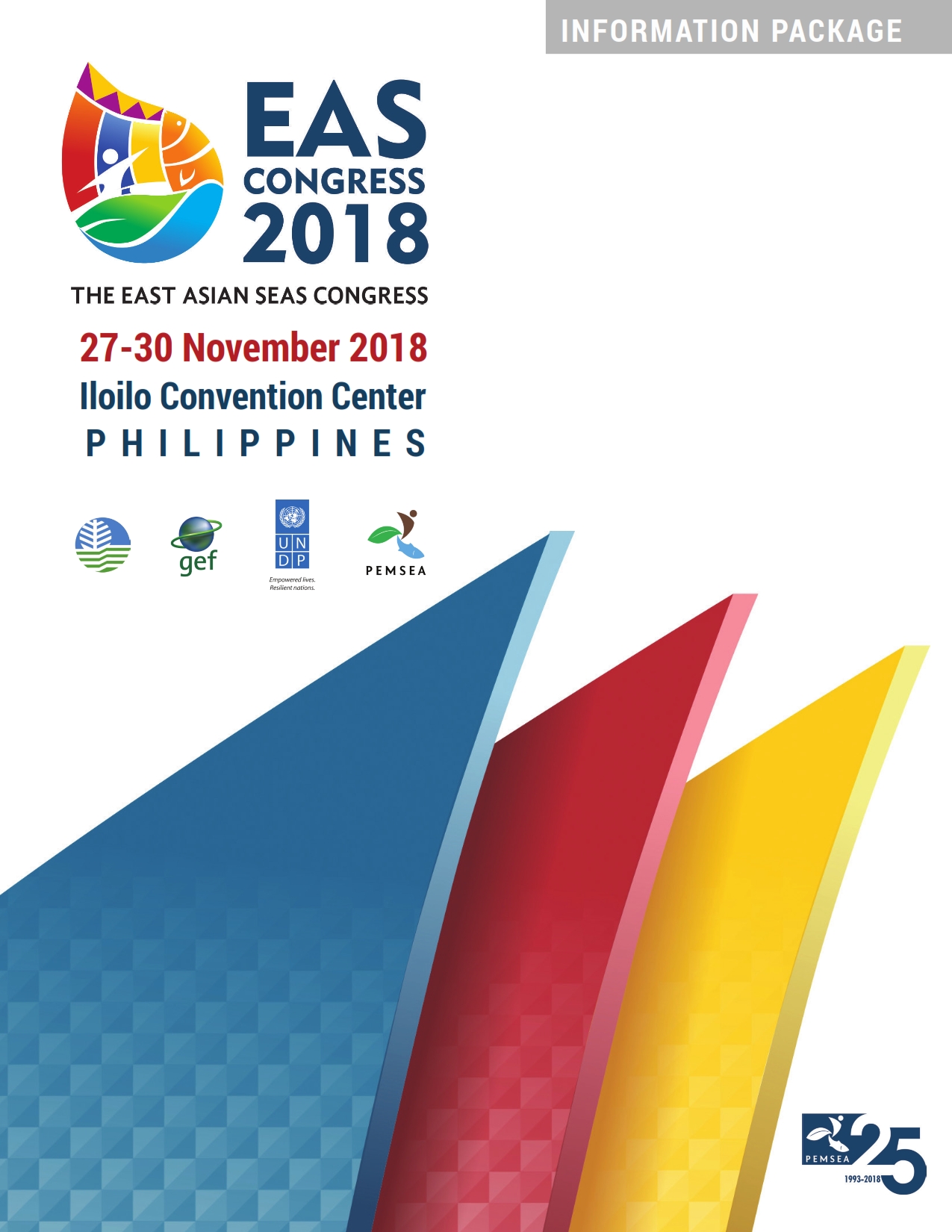
Breadcrumb
-
Proceedings of the Fifth EAS Youth Forum (EASC2018)
The East Asian Seas region recognizes the role of youth engagement to achieving the UN Sustainable Development Goals (SDGs) and the global ocean agenda. Themed “Moving as One with the Global Ocean Agenda: Active and Engaged Youth”, the Fifth EAS Youth Forum featured peer-to-peer learning discussions, team-building and creative sessions to empower the next generation of young champions for the oceans and coasts. The Youth Forum intended to enhance youth’s understanding on the environment’s current situation and appreciation of the role they can play in sustainable development and the global ocean agenda. The forum gathered 70 youth from EAS countries, namely Cambodia, China, Indonesia, Japan, Lao PDR, Malaysia, Philippines, RO Korea, Singapore, Thailand, Timor-Leste, and Viet Nam to learn and interact with a roster of high-profile speakers and leaders in ocean and coastal management.
Specifically, the YF5 aimed to:
- Launch the PEMSEA Youth Programme and the PEMSEA Network of Young Leaders (PNYL);
- Provide a conducive platform for mutual exchange of knowledge, experience and skills in sustainable ocean and coastal management;
- Strengthen the youth’s capacity to develop and/or lead initiatives at the local, national, or regional level;
- Sustain and expand the network of young people empowered to take actions in protecting the region’s oceans and coasts through the PNYL and its country hubs;
- Produce a clear youth commitment to achieving sustainable ocean management through the youth declaration; and
- Promote the youth’s crucial role in achieving the UN SDGs, particularly those contributing to the global ocean agenda.
-
Proceedings of the workshop on Interdisciplinary Research to Underpin Sustainable Planning and Management for Blue Economy (EASC2018 Session 7 Workshop 2)
This session focused on interdisciplinary research, which increases understanding of the economic, social, and ecological systems, and how it should, and can be used to support marine planning, management, and future sustainable development and blue economy.
The session aimed to:
- Present different approaches to undertaking blue economy-relevant interdisciplinary research;
- Describe innovative decision support tools that are being developed from this research; and
- Discuss examples of how and where these approaches and tools are, or could be used across the multiple and interacting blue economy sectors (e.g., renewable energy, fisheries, aquaculture, tourism, recreation and leisure) to promote sustainability of ecosystem services that underpin these sectors, and are impacted by them.
-
Proceedings of the workshop on Healthy Coasts and Healthy ASEAN: Saving the ASEAN Seas through Effective Collaboration (EASC2018 Session 3 Workshop 1)
Session 3.1, entitled “Healthy Coasts and Healthy ASEAN Partnership Hub”, shared the status of the coastal and marine resources in the ASEAN, and the conservation actions of the ASEAN Member States (AMS) as they relate to the goals of the Convention on Biological Diversity. Specifically, the Session discussed the relevant Aichi Biodiversity Targets, the UN Sustainable Development Goal (SDG) 14, and the implementation of the Sustainable Development Strategy for the Seas of the Southeast Asia (SDS-SEA).
Stemming from the progress of the AMS in achieving the Aichi Biodiversity Targets, the Session shared lessons and practices in the region towards achieving an effective Marine Protected Areas (MPAs) and MPA networks to mitigate biodiversity loss and maintain productive coastal and marine environment; discussed emerging issues affecting the coastal and marine environment in ASEAN; and identified gaps and opportunities towards creating an enabling policy environment.
-
Proceedings of the workshop on A Critical Review of 25 Years of Land Reclamation in East Asia (EASC2018 Session 5 Workshop 3)
In East Asia today, coastal land reclamation is emerging as an attractive option to provision land for real-estate development. This is concerning because coastal land reclamation inevitably degrades the health of the coastal and marine ecosystems and threatens the livelihood, culture, and traditions of fishing communities. With sea-level rise, coastal waterfront development also increases the risk of natural hazards such as tsunami and stormwater flooding. Land reclamation should be seriously concerned regarding the long-term resilience of the coasts and the people of East Asia. In this regard, this session reviewed various dimensions of land reclamation: history and current status, political economic drivers of land reclamation, the importance of preserving wetlands as migratory bird habitats, wetlands restoration, and policies. Panel discussion following the presentations discussed a possibility for creating a regional reclamation watch program to share knowledge on land reclamation among PEMSEA’s member countries. There was a consensus that, as reclamation becomes a profitable business, economic impact assessment alone is not sufficient to assess the real costs and long-term impacts of land reclamation. The session concluded that equity and sustainability, the two main goals of SDGs, should be the leading principles in evaluating the feasibility of present and future reclamation projects.
-
Proceedings of the Realizing the SDGs through Strategic Partnerships: A Future Trajectory for Action in the Northwest Pacific (EASC2018 Session 4 Workshop 3)
The session focused on how the Northwest Pacific Action Plan (or NOWPAP), one of the eighteen Regional Seas Programmes of the UN Environment (or UNEP), could keep a momentum and strengthen further regional cooperation and partnership building, which have facilitated scientific assessments, contributed positively to institutional development and were part of the regional ocean governance in the Northwest Pacific region. More specifically, the session explored the challenges and opportunities for regional partnerships and cooperation that are necessary to realize Sustainable Development Agenda 2030 and achieving the SDGs.
Presentations were followed by more in-depth discussion focused on marine litter management, pollution reduction and eutrophication, preparedness and response to oil and chemical spills, coastal zone management, and regional ocean governance.
Speakers emphasized that to advance the implementation of the 2030 Agenda for Sustainable Development in the region, NOWPAP would need to address the following three-interconnected challenges:
- Building lasting regional peace through science diplomacy;
- Supporting sustainable growth and prosperity; and
- Protecting the marine and coastal environment.
-
Proceedings of the workshop on Partnerships to Scale-Up Community-based Ocean and Coastal Management (EASC2018 Session 3 Workshop 3)
GEF Small Grants Programme (SGP) is a corporate program funded by the GEF and implemented by UNDP to support local actions to address global environmental challenges. SGP provides financial and technical support to communities and civil society organizations to protect the environment while addressing poverty reduction issues through community empowerment. Local successes, if not being scaled up, have limited impacts and cannot reverse the environmental degradation trend in oceans and seas. Recognizing that partnerships are essential to scaling up, SGP has worked with GEF full-sized international waters projects to practice integrated ocean and coastal management through implementing regional action programs at local level and integrating local actions to regional frameworks.
SGP has collaborated with UNEP/GEF South China Sea Project, PEMSEA and UNDP/GEF Yellow Sea Project to promote the incorporation of local demonstration activities in collaboration with SGP country programs under the regional projects. SGP has also supported international waters projects to address environmental challenges in the East Asian Seas.
The panelists discussed:
- How projects generate greater results and impact beyond expectations?
- How to create an enabling environment for scaling up?
- What experiences and lessons learnt can be drawn from project implementation?
-
EAS Congress 2018 Daily Bulletin Day 2
EAS Congress 2018 Daily Bulletin for 28 November 2018.
-
EAS Congress 2018 Daily Bulletin Day 1
EAS Congress 2018 Daily Bulletin for 27 November 2018.
-
East Asian Seas (EAS) Congress 2018 Program
The upcoming East Asian Seas (EAS) Congress celebrates 25 years of partnerships for healthy oceans, people and economies.
Application forms to organize Partnership Hubs may be found here.
Information on EAS Congress registration and other arrangements will be released soon.
